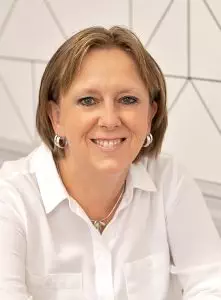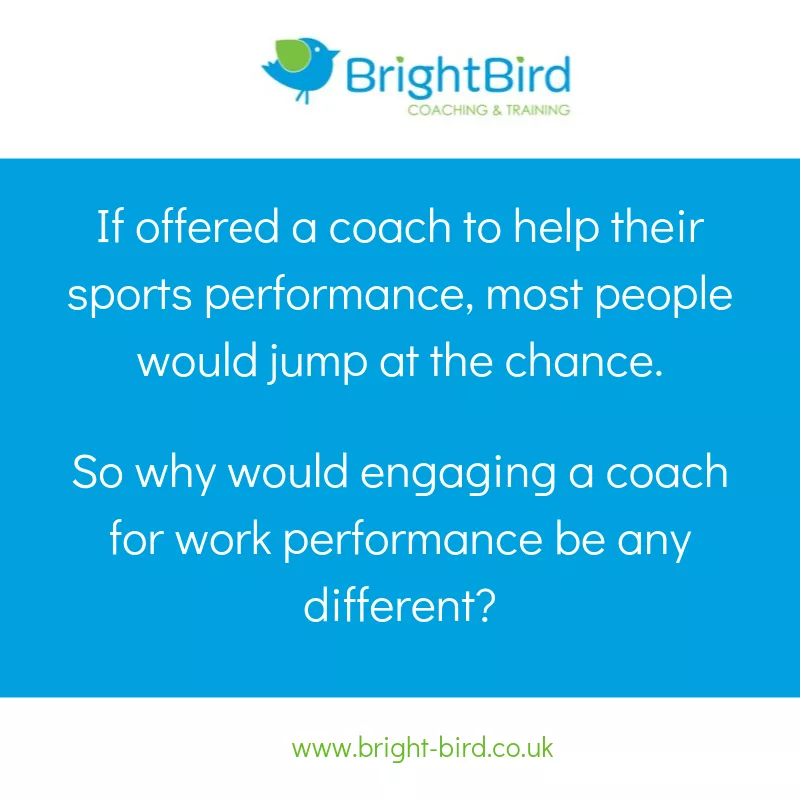executive coaching
3 Reasons Everyone Needs a Coach
3 Reasons Everyone Needs a Coach
By Karen Amos
As Bill Gates said… ‘Everyone needs a coach.’ And who am I to argue? I mean, the lad’s done OK for himself hasn’t he?
As a coach, I’m often asked, ‘Do you have a coach?’ The answer is, ‘Yes, I have several coaches.’
I have coaches for various aspects of my life and work, depending on what I need. For example, I have a long-standing coach supervisor who supports and challenges me to improve my own practice as a coach. I’ve also had business and personal coaches at critical points.
I’m writing this blog, as I had a realisation this morning I needed more coaching. This time it’s for physical fitness. Some of you may know I had a hip replacement in the spring. It was successful and I’m now getting my life and mental wellbeing back, being able to walk up my beloved mountains and get the space, peace and exercise I so need. (Even though I do spend a disproportionate amount of time asking myself what on earth I was thinking, when finding myself on a steep slope in the pouring rain!)
So back to my fitness coaching. Most people understandably assume that as a coach myself I’m hyper-motivated all the time and know all the nifty coaching techniques to successfully coach myself to whatever goal I choose. Which is kind of true, but here’s the problem – I’m only human.
That being human means that sometimes I can be a bit defeatist and even, dare I say it, a bit lazy. Yep, let’s face it, we all have our excuses ready from time to time don’t we?
To quote another famous sleb, ‘You can have what you want, or you can have your excuses.’ That one’s from good old Arnie and again, he seems to have done OK for himself too!
“YOU CAN HAVE WHAT YOU WANT OR YOU CAN HAVE YOUR EXCUSES”
So, with all that in mind, I’ve called my gym coach to discuss returning to paying her to allow me to complain, swear and turn into a sweaty mess for a couple of hours a week – otherwise known as gym classes.
Now, I have all the equipment at home and knowledge of training routines to crack on and get my fitness up to scratch again, so why don’t I just do that? Well, the same reasons I would recommend a coach for anyone at work, applies to me too.
1. Challenge
Your coach, whether that’s a leadership, fitness, business or any other type of coach, will push you out of your comfort zone. That ‘un-comfort’ zone is where the change that needs to happen, does happen.
Let’s stick with fitness as an example – you start off with great intentions, but within a very short space of time, you revert back to what’s comfortable. That’s just human nature – it’s how we’re wired – but to get meaningful change we have to enlist someone who’s going to challenge us. This is vital, whether that’s to do that extra set of reps with the weights, or to make that scary decision we’ve been putting off.
The important thing about challenge in coaching is that it’s done with positive intentions and to serve the agenda and goals of the coachee. This isn’t about the coach getting off on how uncomfortable they can make their clients. Any old dictator can do that!
2. Mindset
This goes along with the challenge. A good coach will help you envisage a step-up bigger than you would normally take yourself. They don’t take ‘no’ for an answer and will help you build a positive, can-do, growth mindset, not based on wishful thinking, but on affirmative, tangible action and results.
In short, a good coach helps you get out of your own way.
3. Accountability
Commitment makes or breaks success. Doing something once, however well will not bring you lasting success (even if that one thing is buying a winning lottery ticket. With the wrong mindset, you’ll have blown it in no time). As the US coach Tony Robbins describes, we need to take small, consistent steps to maintain lasting change.
Working with another person is a fantastic way to help build personal accountability. This is particularly true if you’re a senior leader or business owner, or even if you’re doing something for you, such as starting a new fitness programme.
The fact is, stating an intention out loud, particularly to someone whom you respect, means you are much more likely to follow through on your actions. Let’s face it, none of us like to be proved wrong, or wanting do we?
Additionally, paying for this means we feel we have personally invested something. We have skin in the game. It’s an uncomfortable fact, but this is why ‘free’ programmes often fail and have much fewer participants at the end. There’s just not enough investment personally from the participants. Not enough to lose. This way, we’re much more likely to dig deeper – if you’re a born and bred Yorkshire woman like me, you’ll always want to get your money’s worth! This inevitably means better results.
So the question is, how and from whom can you get the right level of challenge, positive mindset and accountability?
Hopefully that’s given you some insights into why all good coaches have coaching. Why not give it a go? After all, think of how much you could gain…
Check out the links below to find out more about our latest coaching-based training courses and programmes. We also offer individual and team coaching on leadership and performance matters.
For schools and education settings
For business and organisations
Or call us: 07714 855757
or click HERE to book in a short, no-obligation chat
Karen Amos is an executive coach and founder of BrightBird Coaching & Training. She supports leaders and managers to get the best out of themselves and their teams. She brings a down-to-earth, practical approach to improving working lives through better leadership, communication and working relationships.
3 Reasons Everyone Needs A Coach
Feeling overloaded? The solution might not be less work...
Feeling overloaded? The solution might not be less work...
By Karen Amos
I’ve just had a couple of interesting sessions with clients, exploring how to create capacity within their organisation and their life in general. Many of us know the feeling of being up to, if not over capacity and the stress, pressure and often anxiety this brings. It’s almost a fact of modern working life - that feeling there’s just no wriggle room and that you daren’t even think about what happens if one more thing goes wrong, or there’s a bout of sickness or a resignation.
I’m a coach not a magician, so I can’t manifest time that doesn’t exist – although it wouldn’t be a bad superpower would it? What I can do often feels a little magical though in the turn-around it brings people, but there’s no woo-woo involved – I simply help my clients find clarity.
Often when I start working with clients, particularly around any ‘Time Management’ type issues, they expect me to do the usual, ‘Prioritise your tasks… delegate…, etc., etc.’ There's very much a time and a place for these tools and I frequently use these along with other time management techniques, this usually isn’t my starting point.
The fact is that most time management issues stem from a mindset issue. This is a kind of good news/bad news situation though.
The bad news is that this means the root of the problem lies with how you view it, so no blaming other people for your problems. You know, the whole, 'My boss is so mean to me' routine. A bit harder to do when you're self-employed mind.
The good news is that simply changing how we think, can completely transform our situation.
When I work with my clients, we look at what’s going on… then look at what’s REALLY going on! That’s the key to coaching – getting right down to the root cause of the problem. We often find this too difficult to do on our own, as we’re viewing the world through a filter of our emotions, values, experiences and expectations. A good coach will help you work out exactly what your pressure points are and also your priority outcomes. (Hint – we often confuse activity with outcomes and these really, really are not the same thing!)
One of the questions I often ask my clients is:
What would change if you accept the fact there will always be too much to do in any given day/ week/ month/ year?
Along with:
What would you do differently if you believed your wellbeing and happiness was just as important as everyone else’s?
By asking these types of questions, I can bring a fresh pair of eyes for my clients, helping them make decisions and create the space they need to work on the stuff that really counts. So to paraphrase that paragon of Stoic philosophy, Marcus Aurelius, the difficulty is often not what's going on around us, but our response to this.
If you'd like to find out how our 1-to-1 coaching programmes can help you get 'unstuck' and move forward this year...
Call us: 07714 855757
or click HERE to book in a short, no-obligation chat
Karen Amos is an executive coach and founder of BrightBird Coaching & Training. She supports leaders and managers to get the best out of themselves and their teams. She brings a down-to-earth, practical approach to improving working lives through better leadership, communication and working relationships.
Wrestling the shark - getting to grips with the unknown...
Wrestling the shark – coaching questions to help you get to grips with the unknown…
By Karen Amos
I’ve just been reading an article about Great White Sharks in Scotland (Spoiler – there are some, but not many, so you’re more likely to die of hypothermia!). As it does, my mind went on a little meander, taking me back to watching the film Jaws for the first time as a kid. I wasn’t old enough to watch it at the cinema, but later watched when it aired on TV in 1981. The rest of my family was out and I remember my Mum asking if I really wanted to watch it on my own. She knew I wasn’t a fan of scary stuff, having been traumatised by the daleks and a pantomime of Beauty and the Beast years before. (I know, it’s not exactly the exorcist, but I’m a horror lightweight OK!)
The article vividly brought back the suspense in the lead up of the film. The tension, anxiety and fear. The glimpses, the terror of the characters and of course, the music. This was going to be horrific – should I be watching it alone?
Then we finally had the reveal and saw the shark in all its terrifying monstrousness… erm, no… I remember laughing out loud. Special effects weren’t exactly enhanced in those days and Steven Spielberg definitely got the hang of it later, but the sight of the obviously latex shark just took the scariness out of everything. From that point on I just buckled in for the ride and enjoyed the rest of the film as a bit of a comedy adventure.
This lead me on another little meander to think about how I use this technique in my coaching to help clients with change. No, I don’t make them swim with great whites (although perhaps there’s a business opportunity in there somewhere…), but the process is the same. Simply, that…
We fear what we can’t see.
Fear is disabling. We’re all familiar with the ‘fight or flight’ adrenaline response to danger, but there’s actually another, less well-quoted response that’s equally as powerful. That’s Freeze.
For this response, think rabbit in the headlights. The rabbit knows the danger is coming and even though it’s naturally built to flee, it just can’t get its muscles to move. We often have the same response in life and the causes and effects can be quite insidious. Usually the cause is nothing so obvious as a shark attack, or a car about to run us over – it’s the stuff lurking in our subconscious. It’s there, we’re largely unaware of it – but it’s controlling our every action, thought, emotion and decision.
This stuff includes fear – particularly fear of failure, or of being judged. Other things can be good old imposter syndrome, or a past negative experience that we subconsciously don’t want to repeat. The problem is that we’re often completely unaware on a conscious level of what’s actually going on and berate ourselves for not driving forward in the way we would like.
My wonderful coach supervisor has a phrase to sum this up perfectly…
‘Let’s identify it – let’s name it – then we can control it.’
If you find yourself procrastinating, or tinkering around the edges of a task or project, this could be the root cause. The fact is that once we name the thing that’s causing the problem, we find, just like with the latex shark, that it no longer has a hold over us. It’s common for my clients, once they’ve named the issue, to quickly and metaphorically roll up their sleeves and crack on with the task at hand as if there never was a problem.
So as usual, here are some coaching questions to break out of the freeze mode and identify and name what’s really going on.
- What is it about this task/issue that I find so difficult?
- What’s the part I really don’t want to do?
- What am I worried may happen if I do this?
- What are the risks for me here? (NB: risks can be personal/emotional as well as physical or financial)
- Can I relate this situation to something that’s happened to me before?
- What would I be embarrassed to admit about my approach to this?
- What’s ‘unseen’ or uncertain here?
- If there was one thing holding me back, what would it be?
It’s a fact that whilst coaching has a focus on action and goals, often the biggest part of the work is around the reality check of ‘What’s REALLY going on here’. The fears, anxieties and general horrible imaginings that hold us back from getting what we really want. Do remember that these are also questions you can use to help someone else who seems ‘stuck’ too, whether you’re a manager, a colleague, or just a friend.
If you’d like to find out how our 1-to-1 coaching programmes can help you get ‘unstuck’ and move forward this year..
Call us: 07714 855757
or click HERE to book in a short, no-obligation chat
Karen Amos is an executive coach and founder of BrightBird Coaching & Training. She supports leaders and managers to get the best out of themselves and their teams. She brings a down-to-earth, practical approach to improving working lives through better leadership, communication and working relationships.
Wrestling the shark - getting to grips with the unknown
Overwhelmed with work? Treat your to-do list as if you were going on holiday...
Overwhelmed with work? Treat your to-do list as if you were going on holiday...
By Karen Amos
Is your workload stressing you out right now?
If so, I’d say you’re in good company. So many people are saying they’ve too much to do and not enough time to do it in. On top of this, there’s the added pressure of the summer holidays. Of course, this is doubly significant for those working in education with end of term looming – but it also applies to anyone who has a break booked, but doubts whether they’ll make it in one piece due to the amount tasks they’re facing.
So before we look at what we can do to manage this, let’s do a quick reality check (Magic wands and wishful thinking are very nice, but some things are just fact – albeit slightly uncomfortable ones!).
FACT #1 – There will always be too much work and too many things to do in any given day, week, month, eternity…
FACT #2 – No matter how motivated, or how good your intentions are, you only have a finite amount of energy. (Sorry to be the bearer of bad news, but you are not a robot!)
FACT #3 – Much of the pressure we feel is artificially created. It comes from other people, or worse still ‘systems’ and cultures, that we leave unquestioned.
FACT #4 – The more tired and stressed you get, the more ineffective and unproductive you become.
OK, so that’s all the doom and gloom stuff, but does that mean we’re all destined for a life of unproductivity and angst? Absolutely not! And the good news is that so much more is in your control than you may believe.
This is why I believe we should take the ‘One week to my holidays’ approach to managing our workload…
So here’s how it usually goes over your last 5 working days:
Day 5 – You’re full of good intentions about how you will clear all those pesky jobs that have lurked on your to-do list all year. That way you can go on holiday with a clear conscience, self-congratulating at all the amazing work you’ve smashed this week…
Day 4 – You’ve tripled the length of said to-do list, but haven’t actually done a single thing, other than fire-fighting more tasks that weren’t even on there.
Day 3 – You realise that half of these tasks will take at least a week each, so decide to put them off until after your holidays (or even next year!).
Day 2 – You’ve ditched 80% of your original tasks and are now prioritising the the things that will cause disaster/mayhem/get you the sack if you don’t do them…
Final working day – You’re ditching tasks from that list with abandon (many of which will never find their way back onto it, even though you were convinced were non-negotiables three days ago). You’re becoming slightly delirious and demob-happy and start doing the bare bones of what’s needed and seem to have forgotten about your perfectionist tendencies after all…
Sound familiar? I know it well!
So if those tasks were so important in the first place, why do some become more negotiable/optional the more time-pressures exert themselves?
Usually it’s because they actually weren’t so important. They were wishes, they were unplanned and they were good intentions (and we all know what the road to hell is paved with…).
That’s why we should be grateful for that last-minute panic before our holidays. It helps us shine a light on what’s really important and also what our day is actually filled with.
Here are some coaching questions to help you see your workload in a new light:
1. Realistically, how long will these tasks take me with no distractions?
2. What would I advise the people I line manage if they presented me with this to-do list?
3. What needs to change in order to achieve the more strategic stuff, or the things that will make a difference?
4. What 3 things can I put in place quickly and easily to cut out distractions and fire-fighting?
5. Who are the key people around me who can help me with this?
Hopefully, you’re now able to give yourself permission to take a fresh view of that never-ending to-do list and have a wonderful, restorative holiday!
If you’d like to find out more about our training courses and programmes on time-management, work-life balance and wellbeing please get in touch. We also offer individual and team coaching on leadership and performance matters.
Call us: 07714 855757
or click HERE to book in a short, no-obligation chat
Karen Amos is an executive coach and founder of BrightBird Coaching & Training. She supports leaders and managers to get the best out of themselves and their teams. She brings a down-to-earth, practical approach to improving working lives through better leadership, communication and working relationships.
Tired of playing the bad guy? Why not play yourself instead....?
By Karen Amos
‘I’m not scared of playing the bad guy’.
I hear this phrase so many times on my travels as a coach and I have to confess, I’ve said it myself in the past.
But let’s just unpick this for a moment. Why when we need to give negative feedback, or have a difficult conversation with someone, do we feel we’ve no option but to be the ‘Bad Guy’? Shouldn’t we just be doing what’s right? I know from my own experience that there are many reasons for saying this phrase.
Here are a couple:
1. Fear – Of what the other person might do or say, or of things getting out of control. Sometimes it’s the fear of not being liked.
2. Lack of options – Often I felt low on resources – either of potential solutions to the problem, or lack of interpersonal skills to deal with this.
The worst part of this was for me, I know I’m not a ‘Bad Guy’. I now recognise I’m a good, kind person, who likes to be fair to others and always tries to do the right thing. This is most of us right?
This situation is a good example of where Authenticity pays dividends. What if you didn’t need to be the ‘Bad Guy’ and could instead, get the right result just by being yourself? Sounds good? Just think, less anxiety, sleeping well, knowing you did your best, increased personal responsibility for the other person and less of the ‘blame game’…. The list goes on…..
The secret is to take a coaching approach to giving feedback and difficult conversations. This approach means you’re not there to ‘fix’ the person, but to work collaboratively with them to find a workable solution. The first step is to be clear what you and they want out of the situation and to work together to find the solution.
Yes, I acknowledge there may be occasions where the person concerned refuses to accept their personal responsibility and you’ll have to deal with this accordingly, but from experience these people are in the minority.
By implementing this Authentic Leadership/coaching approach, I've found that raising issues with people more often than not, results in a positive, constructive outcome. I frequently hear examples from my clients where they've been dreading a conversation, but by implementing this approach have had surprisingly positive outcomes. For example, people who have been placed on performance management have still thanked their manager for their support and as a result have addressed and resolved the issues raised.
No-one likes giving negative feedback and certainly no-one likes to receive it, but to know you’ve truly done your best to work with the person to find a positive solution to the problem must surely rest better with you than having had to play the ‘Bad Guy’ again.
If you'd like to find out more about our value for money in-house Managing Difficult Conversations training courses, click here:
If you'd like to find out more contact us on:
Tel: 07714 855757 or email: [email protected]
Karen Amos is an executive coach and founder of BrightBird Coaching & Training. She supports business owners and managers to get the best out of themselves and their teams. She brings a down-to-earth, practical approach to improving working lives through better leadership, communication and working relationships.
Let's be honest about it... Do you have the courage to say you don't know?
Let's be honest about it... Do you have the courage to say you don't know?
by Karen Amos
There has, rightly I'd say, been criticism of the government and the like, regarding a lack of information. This leads to statements like, 'treating us like children' and people translating the law according to their own preferences.
The problem is, there's probably a lack of credible information to give right now, be this be at a government level, or within a school or businesses. We're living in a high state of uncertainty, which brings anxiety. This naturally leads people to think there's something negative or sinister going on and off we all go...
Nature abhors a vacuum and in my experience, this applies to information too. Create a space and someone will fill it. It doesn't matter if what's filling the space is true, credible, or even helpful - it will get filled. Just check out the tabloids if you've any doubt!
This is an area where Authentic Leadership provides the way forward. Behaviours of Authentic Leaders include honesty and openness. What Bill George calls Relational Transparency – Sharing of thoughts and beliefs with honesty and genuineness – no games or hidden agendas.
This means if you don't know the answer to something, you say so.
Another of the behaviours is the ability to solicit or consider other viewpoints - enlisting the help and resources of those around you to help you find the right path or solution. It's hard to admit we don't know, particularly when we're working in a position of authority, but done well, this will build trust and strengthen teams, not take it away.
If you would like to find out how BrightBird can help you build leadership performance and support your teams to remain positive and productive, get in touch for a no-obligation chat. We offer online 1-to-1 coaching support from senior leadership to front-line staff, group and peer coaching and training/webinars.
Tel: 07714 855757 or email: [email protected]
Check out our latest training offers at: https://brightbird.wordifysites.com/services/training-courses/
 Karen Amos is an executive coach and founder of BrightBird Coaching & Training. She supports business owners and managers to get the best out of themselves and their teams. She brings a practical, down-to-earth approach to improving working lives through better leadership, communication and working relationships.
Karen Amos is an executive coach and founder of BrightBird Coaching & Training. She supports business owners and managers to get the best out of themselves and their teams. She brings a practical, down-to-earth approach to improving working lives through better leadership, communication and working relationships.
Dare you discuss your work performance?
By Karen Amos
I've just listened to an excellent episode of 'Ramblings' on Radio 4, where Clare Balding discussed mental health in business with an ex-CFO of a FTSE 250 company. He explained how he had experienced depression all his life, but felt he had to hide this in his workplace, as to disclose this would have been detrimental to his career.
He also discussed his lifelong tendency to focus on the negative - something I'm sure most of us have suffered from at some point. A classic example of this is ignoring the 99% positive feedback in your performance review and just hearing the 1% that could have been better.
Whilst there is a difference in the interventions needed to help people who are experiencing mental ill-health, there was a clear acknowledgement that there was a need to discuss areas of concern, performance and difficulties faced in the workplace. This is necessary to proactively prevent mental illness and promote wellbeing and build positive performance.
The assumption is that men find it more difficult to talk about themselves. My experience as an executive and professional development coach however, is that just as many women face the same fears and challenges. Surely, being able to do this should be seen as a strength, but many of my clients will not disclose to others that they are receiving coaching for fear of being perceived as 'weak' or 'under-performing'.
At the end of the programme Clare Balding asked the man if he would have any problem engaging with a sports coach to enhance his performance on the field. Without hesitation he said, 'No'. The implication is that this is seen as a positive move. The question then was, 'Why then are so many people reluctant to seek the same help in the workplace?' That support exists - it's also called a coach!
What's your stance on engaging someone to help your peformance at work? Are you prepared to speak candidly with someone, in confidence about your work performance, or does this feel 'unsafe' for you?
Karen Amos is an executive and professional development coach and training and the owner of BrightBird Coaching & Training. If you'd like to find out more about how Karen can help you and your team to be more positive and productive, get in touch for a no-obligation chat. Call on 07714 855757, or email [email protected]








